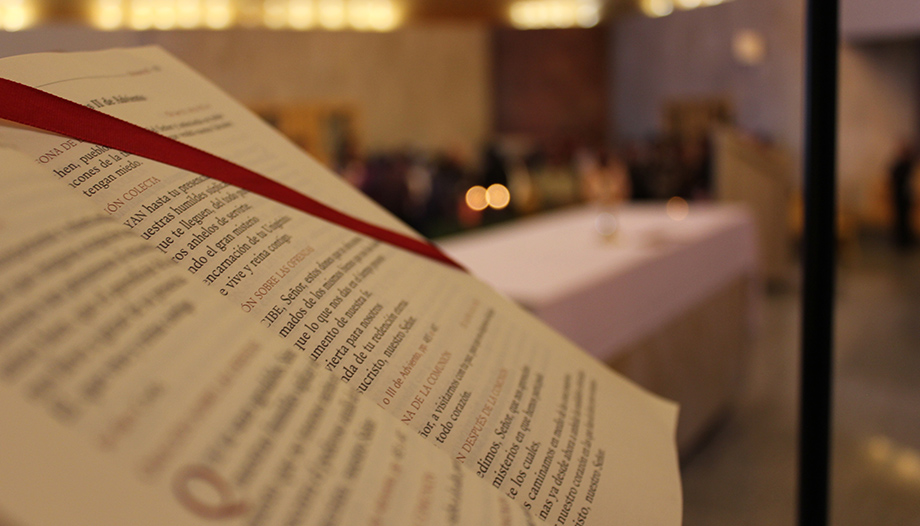Today's Gospel is so long - the complete account of Our Lord's Passion - that priests do not usually add more than the briefest of homilies to comment on it.
The description of Christ's suffering for us is more than enough to speak for itself. To the procession of the Palm branches at the beginning of Mass is added the account of Christ's entry into Jerusalem on a donkey. And with it we accompany Jesus in some way on his way to the Holy City to suffer and die for us. Numerous saints have encouraged us to meditate on the Passion and to enter into these scenes. "as just another character", said St. Josemaría Escrivá. We too can be among the multitude that spreads its garments before our Lord; we can be one of the children shouting in the Temple: "Hosanna to the Son of David!" (Mt 21:15). We should not limit ourselves to reading the Gospel scenes, but to living them.
But if we truly live them, we will also discover in ourselves the terrifying possibility that our role is not always that of the faithful disciples, the Virgin and St. John and the holy women around the Cross. The role we often play could be that of the apostles fleeing from Christ in the Garden of Olives. Or even that of the scribes and Pharisees indignant at the cries of children: how many times have we been disturbed by expressions of faith that do not conform to our rigid ideas of propriety. Or, most frightening of all, we might find ourselves among the crowds that before Pontius Pilate cried out for the death of Jesus, shouting: "Crucify him! Crucify him!" (Lk 23:21).
Today we celebrate what seems to be the triumph of Christ. He enters Jerusalem acclaimed by the crowds as Messiah-king, Son of David, fulfilling the prophecy of Zechariah: "Behold, your king comes, poor and riding on a donkey, on a donkey's colt." As humble as an ass is, in the past it had been an animal of royalty (see 1 Kgs 1:33), so the fact that Jesus used it expressed both his humility and his royalty. In five days' time, that king will be crowned with thorns and nailed to the "throne" of the Cross. But three days later he will rise gloriously to lovingly seek out the very men who had let him down so badly. All these events teach us not only not to attach too much importance to apparent success - the bubble can quickly burst - but also not to attach too much importance to apparent failure. The only definitive triumph is the Resurrection of Christ and Christ is still alive: "He is risen.". We can live this Holy Week well or badly, Lent may have been a disaster, but it is enough to be close to Mary and accept our weakness and our need, and every failure will become a victory. Holy Week teaches us that all failures lead us to the ultimate triumph. Death is the way to life.
The homily on the Palm Sunday readings (A)
The priest Luis Herrera Campo offers its nanomiliaA short one-minute reflection for these Sunday readings.









